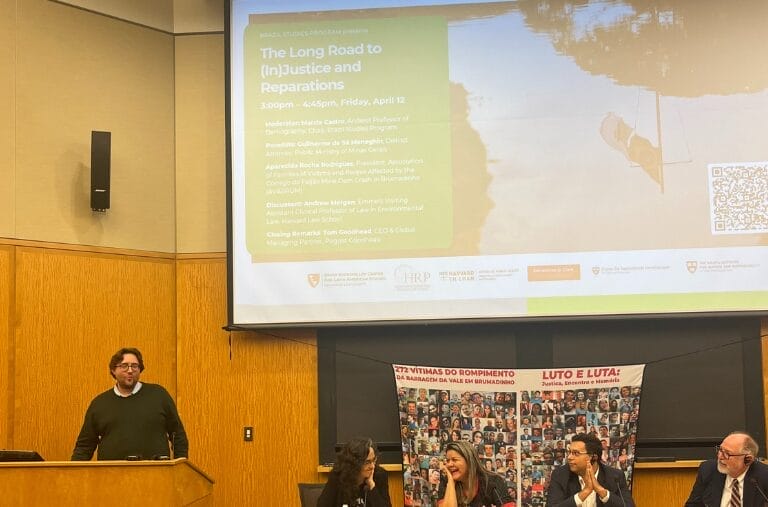The Dutch regime for collective actions was overhauled when the Act on Redress of Mass Damages in Collective Action (“WAMCA” or the “Act”) entered into force.
The Act, which took effect on 1 January 2020, applies to facts that took place after 15 November 2016. It was built upon well-established Dutch collective action mechanisms, in effect since 1994, which made it possible for representative organizations (in most cases a Dutch foundation, or “stichting”) to seek monetary damages in a Dutch collective action procedure.
Previously, Dutch collective actions could only be used as a steppingstone towards obtaining financial compensation, which was usually secured through a collective settlement agreement, and damages could not be claimed.
Now, almost two years since the Act was put in place, we can take a step back to examine the numerous developments and various ongoing WAMCA proceedings.
As none of the cases filed under WAMCA seeking monetary damages have come to a resolution in the first instance, many questions have yet to be answered. However, we can begin to evaluate whether the Act has served its purpose in propelling the Netherlands’ progressive class action regime forward.
CENTRAL PUBLIC REGISTER
Under the WAMCA, a central public register was established in which all pending collective actions are required to be recorded.
Within two days of serving the writ of summons on a defendant, the claim organization is required to submit a full copy of the summons to the court registry and a copy in the Central registry of collective actions in which the names of natural persons are anonymised.
Despite the fact that, pursuant to the letter of the law, failure to meet these obligations results in the inadmissibility of the claimant, courts have thus far shown leniency with respect to certain procedural elements of the new regime.
In a 2020 WAMCA proceeding, the Amsterdam district court did not sanction a late (i.e. not within the two-day required period) submission of the writ to the court with a ruling of inadmissibility. In the judgment, handed down on 1 April 2020, the Amsterdam district court held (translated):
“…late filing at the court registry is in this case no more than an administrative omission as a result of which no (potential) litigants have been harmed in their interests, an administrative omission that has not had nor will have any permanent adverse consequences.”
Further, once the writ has been published in the Central registry, a three-month period is triggered in which additional claim organizations may file collective actions on behalf of injured parties and which relate to the same event(s), similar facts, and legal questions.
Within one month of the publication of the writ, other claim organizations can ask the court for an extension of this three-month period. During this period, the court will stay the initial collective action and, after the period has lapsed, all the collective actions relating to the same event will be dealt with on a consolidated basis.
This process, like many of the other procedural steps within the new WAMCA process, is primarily without guidelines and has yet to be thoroughly played out through the courts. Questions remain, such as:
- On what grounds may an extension be granted?
- Can other claim organizations (that did not seek an extension themselves) benefit from such extensions?
Other questions, such as how a court decides that a case relates to the same event(s), similar facts and legal questions, have also yet to be elaborated upon.
PROCEEDINGS BROUGHT THUS FAR
The Central registry requirement not only allows other claim organizations to prepare an alternative collective action based upon the same events as collective actions brought by other organizations, but also provides a clear view as to the Dutch collective action ecosystem as a whole.
The Central registry indicates that, during 2020, only 16 proceedings were initiated under the WAMCA and only five of them involved monetary claims. The other 11 cases were primarily limited to declaratory and/or injunctive relief.
By October 2021, however, 42 writs had been registered in 39 different cases. Of these cases, 11 are financed by third party funders and all relate to high-value, high-profit cases, namely, Dieselgate-related claims (against Volkswagen, Renault, and Daimler), privacy-related claims (against TikTok, Oracle and Salesforce), and consumer protection-related claims (against Airbnb and Apple).1
Notably, on 2 December 2021, Bureau Clara Wichmann sued Allergan, manufacturer of Biocell breast implants, on behalf of tens of thousands of Dutch women with breast implants from the company.2 It will be the first product liability case to make use of the WAMCA.
STANDING & ADMISSIBILITY
The Act also introduced stricter requirements regarding admissibility in proceedings for monetary damages and specific requirements regarding the standing of claim vehicles (article 3:305a of the Dutch Civil Code) in terms of governance, financing, and representativeness.
For example, claim organizations must have a supervisory body, sufficient financial resources and sufficient experience and expertise to start a collective action.
The Act also aims to narrow the scope of collective actions in order to prevent foreign claimants from initiating Dutch proceedings that are not, or are only vaguely, related to the Netherlands.
Therefore, the Act requires that a claim vehicle only bring a collective action if the legal claim has a sufficiently close relationship with the Netherlands. A sufficiently close relationship exists if:
- The legal person can make a plausible claim that the majority of persons whose interests the legal action aims to protect have their habitual residence in the Netherlands
- The party against whom the legal action is directed is domiciled in the Netherlands and additional circumstances suggest a sufficient relationship with the Netherlands
- The event or events to which the legal action relates took place in the Netherlands.
If the claim is not sufficiently related, it will have no standing.
While Dutch law does not have a mechanism to certify the persons represented by a claim vehicle as a class, an entity bringing a representative collective action must be sufficiently representative and the interests of the persons that are represented in the action must be sufficiently similar (the commonality requirement).
Although, as noted above, none of the cases filed under WAMCA and seeking monetary damages have come to a resolution in the first instance, a number of rulings handed down under the former regime (referred to as WCAM, and which entered force in July 2005) provide helpful insight as to how the courts will handle certain issues under the new regime, such as the “sufficiently similar” requirement.
Ultimately, the question as to whether or not claims are suitable for collective redress because they are sufficiently similar has been approached generously (from a plaintiff or foundation perspective) by the Dutch courts regardless of the nature of the collective action.
Stichting Volkswagen Car Claim v. Volkswagen AG et al
On 14 July 2021, the Amsterdam District Court ruled largely in favor of Stichting Volkswagen Car Claim, a foundation seeking a declaratory judgment for those who bought new and secondhand cars from several Volkswagen dealers.
The court held that the fact that the foundation supports several different classes of interested parties against several different groups of defendants did not mean that the case did not lend itself to bundling.
The court went on to state that these distinctions were made sufficiently clear in the claim, and that the common denominator with respect to the claimants was that all purchased or had leased a Volkswagen car and that all defendants had either sold or procured Volkswagen cars.
The court also ruled that owners of the Volkswagen cars in the Netherlands will be entitled to compensation of between €1,500 and €3,000 over the diesel emissions scandal3. The Volkswagen Group has said that it would appeal the Dutch court order.
Data Privacy Stichting v. Facebook
On 30 June 2021, the Amsterdam district court issued an interim decision in the case brought by the Data Privacy Stichting against Facebook on the matter of admissibility of the case.
Facebook claimed that the allegations of the Foundation do not lend themselves to collective proceedings as the factual and legal questions were not sufficiently similar and the interests of the individual interested parties differ.
The court stated that the claims of the Foundation related to various sufficiently narrowly defined actions of Facebook, all of which were essentially grounded in the claim that Facebook violated the privacy of its users by processing personal data without the necessary consent.
The court ultimately held that such a judgment on the lawfulness or otherwise of the actions of Facebook with regard to the processing of personal data lends itself to a collective action.
The court found that:
- It had jurisdiction over the litigation
- The Data Privacy Foundation has standing to pursue the claim
- Dutch law applies alongside the General Data Protection Regulation (GDPR
Additionally, proceedings were refused to stay.
CONCLUSION
As is evident from the growing number of collective proceedings brought over the past two years, group actions are becoming increasingly popular in the Netherlands.
How the Dutch courts will handle certain questions regarding procedure, admissibility, and standing (amongst other things) under WAMCA proceedings are very much up in the air, as the preliminary phase of the first cluster of claims brought under the new regime have yet to fully crystalise.
Naturally, more substantive issues have also yet to be addressed by the courts.
Ultimately, it is too early to tell whether the WAMCA will live up to its promise of leading to a greatly improved playing field for collective redress and access to justice.
Early signs, however, indicate that the regime will continue to become increasingly heavily utilized and refined with the passage of time.
References
[1] https://thelawreviews.co.uk/title/the-third-party-litigation-funding-law-review/netherlands [2] https://clara-wichmann.nl/nieuws/fabrikant-allergan-aansprakelijk-gesteld-om-gevaarlijke-borstimplantaten [3] https://www.dw.com/en/dieselgate-dutch-court-backs-compensation-for-volkswagen-drivers/a-58261382









